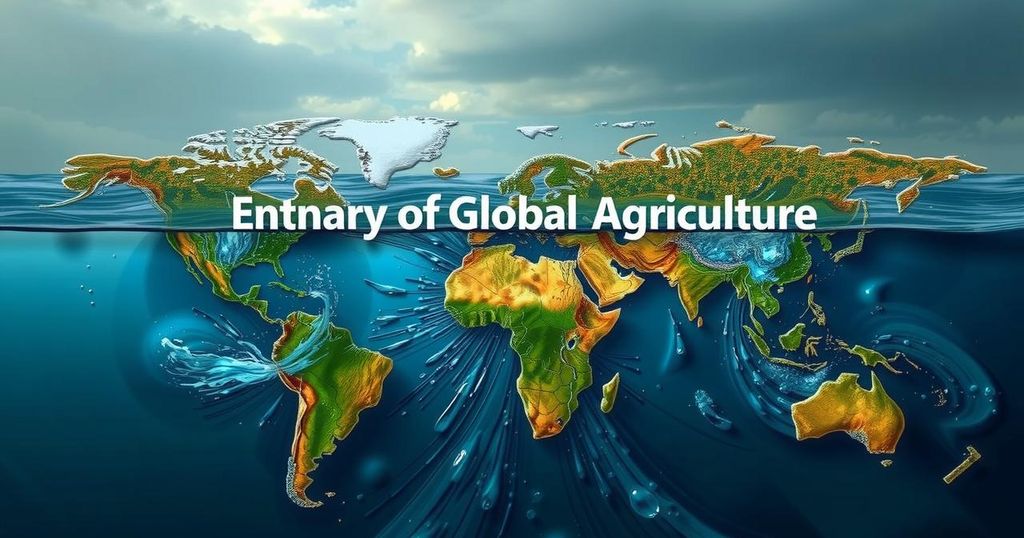Climate Change-Induced Water Crisis Poses Major Threat to Global Food Production
A report from the Global Commission on the Economics of Water warns that climate change and mismanagement are leading to freshwater shortages that threaten global food production, potentially affecting over half of agricultural output by 2050. The GCEW calls for international cooperation, sustainable water practices, and the redirection of agricultural subsidies to mitigate these risks.
A significant report has highlighted the urgent threat posed by climate change to fresh water supplies globally, emphasizing that altered rainfall patterns can jeopardize over half of global food production by 2050. The Global Commission on the Economics of Water (GCEW) warned that climate change, combined with destructive land practices and poor management of water resources, is exerting unprecedented stress on the global water cycle. Presently, nearly three billion individuals and substantial portions of agricultural output are projected to be adversely affected due to diminishing water storage in various regions, particularly in densely populated areas such as northwestern India, northeastern China, and southern and eastern Europe. The report further indicates that agricultural output may plummet by as much as 23% under current trends, underscoring the critical nature of water accessibility for food production. Rising temperatures contribute to a negative cycle that leads to the loss of “green water,” which is vital to sustaining rainfall and agriculture. The GCEW forecasts significant economic repercussions, predicting an average GDP decline of 8% for high-income countries and up to 15% for lower-income nations by 2050 due to these challenges. The GCEW advocates for a collaborative global approach to manage water resources, suggesting the water cycle should be treated as a global common good that warrants collective protection. In anticipation of these challenges, Singapore’s President Tharman Shanmugaratnam, who co-chairs the GCEW, noted the necessity of establishing shared objectives focused on water sustainability. The commission also emphasized the need to eliminate detrimental subsidies that promote excessive water use, redirecting them to support water-efficient practices instead. Ngozi Okonjo-Iweala, GCEW co-chair and WTO Director-General, highlighted the importance of rechanneling the estimated $600 billion in agricultural subsidies that encourage unsustainable water consumption, advocating for a shift in agricultural practices away from water-intensive crops in regions ill-suited for such cultivation.
The report released by the Global Commission on the Economics of Water reflects urgent concerns regarding the impact of climate change on fresh water resources and, by extension, global food security. The document articulates the current crisis caused by fluctuations in rainfall patterns, posing a direct threat to food production systems worldwide. As climate change progresses, the risk of water shortages becomes more pronounced, particularly in heavily populated areas that rely on stable water supplies for agriculture. The interconnectedness of climate factors and economic consequences highlights the necessity of addressing water-related challenges on a global scale.
In summary, the report by the Global Commission on the Economics of Water reveals the critical intersection between climate change, freshwater availability, and food production security. It emphasizes the urgent need for international cooperation to address the impending water crisis, advocating for policies that promote sustainable water management and the redirection of harmful subsidies. The potential economic fallout, particularly for vulnerable nations, underscores the necessity of immediate action to protect vital water resources for future generations.
Original Source: www.rfi.fr




Post Comment